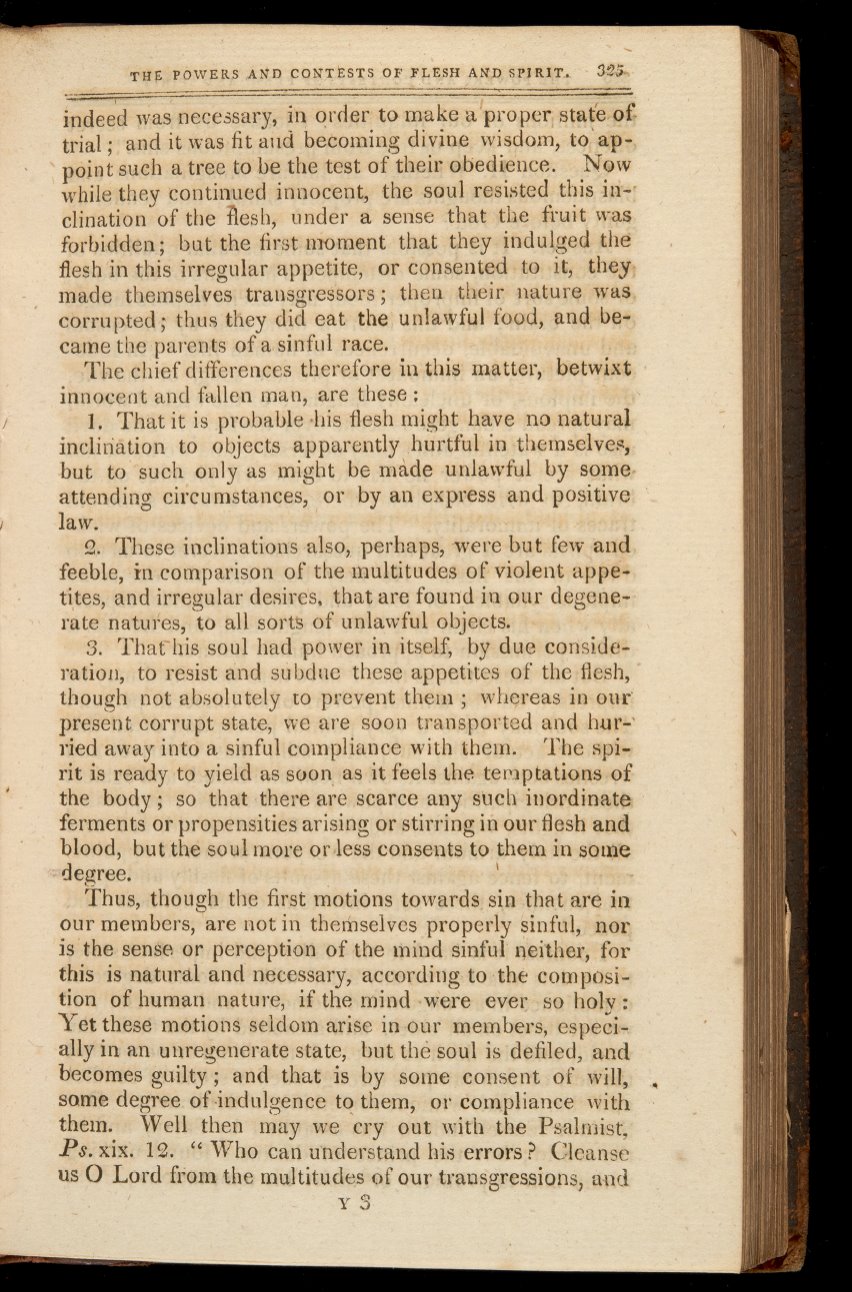

THE POWERS AND CONTESTS OF FLESH
AND
SPIRIT..
325
indeed
was
necessary, in
order to
make
a
proper
stat'e
of
trial
;
and it
was fit
and becoming divine
wisdom,
to'ap-
point
such a
tree
to be
the test
of their
obedience. Now
while
they
continued innocent, the soul resisted
this
in-
clination
of
the
flesh,
under a
sense
that
the
fruit
was
forbidden;
but
the first moment
that
they indulged
the
flesh
in this
irregular appetite,
or consented
to it,
they
made themselves transgressors
;
then
their nature
was
corrupted
;
thus they did
eat
the unlawful
food,
and
be-
came the
parents of
a.
sinful race.
The
chief
differences
therefore
in this
matter, betwixt
innocent
and fallen
man,
are
these
;
1.
That
it
is
probable
his flesh
might have
no
natural
inclination
to objects
apparently hurtful
in
themselves,
but
to
such only
as
might
be
made unlawful
by
some
attending circumstances,
or
by
an express
and positive
law.
2.
These inclinations
also,
perhaps,
were
but
few
and
feeble, in
comparison
of
the multitudes
of
violent
appe-
tites, and
irregular
desires,
that
are found
in
our
degene-
rate natures,
to all
sorts
of
unlawful objects.
3.
That-his soul had power in
itself,
by
due conside-
ration,
to resist and subdue these
appetites
of
the
flesh,
though not absolutely
to
prevent them
;
whereas
in
our
present
corrupt
state,
we
are
soon
transported
and
h.ur
-'
Tied
away
into
a sinful
compliance
with
them.
The spi-
rit
is
ready
to yield as
soon,
as
it
feels
the
temptations of
the body
;
so
that
there are scarce
any such
inordinate
ferments or propensities arising or stirring
in
our
flesh
and
blood,
but
the soul more or
-
less
consents
to
them
in some
degree.
Thus,
though
the first
motions towards
sin
that are in
our
members, are
not
in therilselves
properly
sinful,
nor
is
the
sense
or perception
of
the mind sinful neither,
for
this
is
natural
and
necessary,
according
to
the composi-
tion
of human nature,
if
the mind were ever
so
holy
:
Yet
these motions seldom arise
in
our
members,
especi-
ally in an
unregenerate
state,
but
the soul
is
defiled,
and
becomes guilty
;
and
that
is by
some
consent of
will,
some degree
of
indulgence
to
them,
or compliance
with
them. Well then may
we
cry out
with
the Psalmist,
Ps.
xix.
12.
"
Who
can
understand
his
errors
?
Cleanse
us
O
Lord
from the
multitudes
of our
transgressions,
and
Y3

















